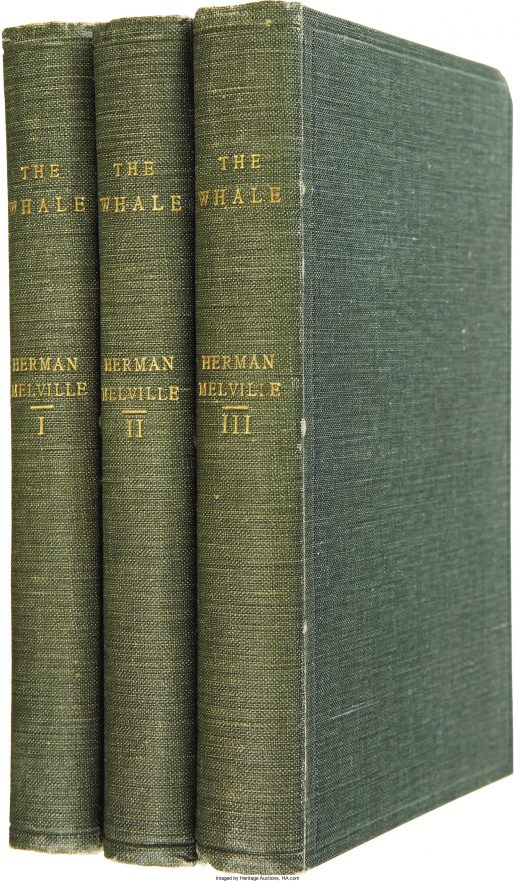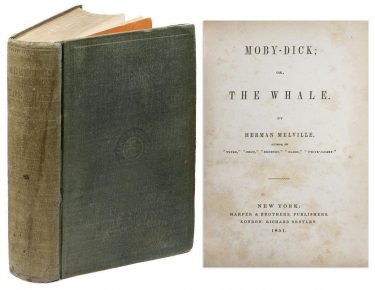Was Moby-Dick’s First Edition Printed Without the Ending?
Here is the latest in a series of examinations into urban legends about novels and novelists and whether they are true or false. Click here to view an archive of the novel urban legends featured so far.
NOVEL URBAN LEGEND: Moby-Dick was printed in England without the Epilogue.
As I noted in a legend years ago (about how the “piracy” in Pirates of Penzance was a reference to COPYRIGHT piracy), in the 19th Century, copyright piracy was rampant. Something would be printed in England and then people would rush it over to the United States, which did not recognize British copyrights, and then print up copies here and be legally allowed to do so.
So while people continued to always publish in England first, what authors began to do was to publish essentially simultaneously in both England and the United States, to gain copyrights in both places at the same time.
That is what happened with Herman Melville’s classic novel, Moby-Dick, about an ill-fated whaling crew hunting down a great white whale. However, in the process, there was a major chunk of the book actually left out of its initial printing!
The book was printed in England in October 1851 in a series of three volumes…

And then, a month later, it was printed in one volume in the United States…

As you can see, a notable difference is the fact that the British edition was called The Whale while the American edition was called Moby-Dick. Melville changed the title fairly late in the process, right around September. By the time that word reached England that he wanted a new title, it was far too late. It had already been announced as The Whale.
England, however, also had a bunch of other issues with the book. The censorship in England was much stricter than in the United States. You weren’t allowed to say anything that could possibly be seen as disrespectful to God, or the English royalty (so out went a piece about the use of sperm whale oil at coronations – like I said, if it could possibly be seen as disrespectful, it was omitted and they weren’t shy about leaning towards omission). Out went anything referencing sex, even the mating habits of whales.
However, since it was in three volumes, they also moved some stuff around in the book, moving the “Etmology” and “Extracts” section of the book to the back of the third volume. It was likely at this point (although no one is certain what happened), that the Epilogue to the book was accidentally removed!
We know that this was not a late addition to the book, because Melville references it in the book. Most importantly, though, it is in the Epilogue that we learn that Ishamel managed to survive the destruction of the Pequod! That’s a fairly important thing to have in the book, ya know?
Because of that, early British reviews of the book mocked Melville for his first-person narrator, since, as one review noted, “not only is Ahab, with his boat’s-crew, destroyed in his last desperate attack upon the white whale, but the Pequod herself sinks with all on board into the depths of the illimitable ocean.” So Ishmael couldn’t be telling the story if he was dead, but you only know that he isn’t dead if you have the epilogue, which was left out of the printing!!
How hilariously bizarre is that?
Thanks to Megan Garber in The Atlantic for the great quote.
The legend is…
STATUS: True
Feel free (heck, I implore you!) to write in with your suggestions for future urban legends columns! My e-mail address is bcronin@legendsrevealed.com
Tags: Herman Melville, Moby-Dick, The Whale





